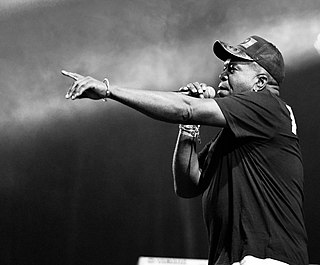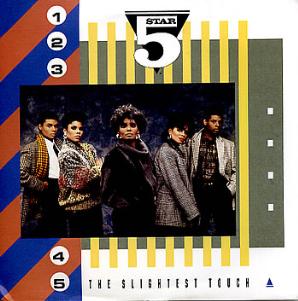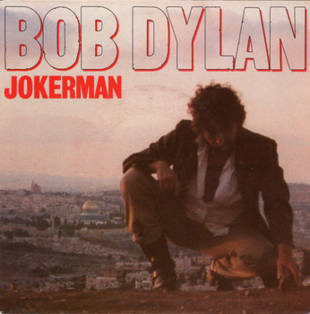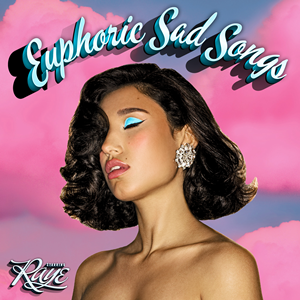Related Research Articles

Barrington Ainsworth Levy is a Jamaican reggae and dancehall artist.

The twelve-inch single is a type of vinyl gramophone record that has wider groove spacing and shorter playing time with a 'single' or a few related sound tracks on each surface, compared to LPs which have several songs on each side. This allows for louder levels to be cut on the disc by the mastering engineer, which in turn gives a wider dynamic range, and thus better sound quality. This record type is commonly used in disco and dance music genres, where DJs use them to play in clubs. They are played at either 33+1⁄3 or 45 rpm. The conventional 7‐inch single usually holds three or four minutes of music at full volume. The 12‐inch LP sacrifices volume for extended playing time.
Colourbox were an English electronic musical group on the 4AD label, releasing a number of records between 1982 and 1987. The band was formed by brothers Martyn and Steve Young, Ian Robbins, and vocalist Debbion Currie. Currie and Robbins left the band in 1983, with the role of vocalist being filled by Lorita Grahame.

Ini Kamoze is a Jamaican reggae artist who began his career in the early 1980s and rose to prominence in 1994 with the signature song "Here Comes the Hotstepper". The single topped the US Billboard Hot 100 as well as record charts in Denmark and New Zealand, reaching number four on the UK Singles Chart.

Gerrit-Jan Mulder, known professionally as Brainpower, is a Dutch rapper who writes, records and performs in both English as well as his native Dutch. He was born in Belgium and grew up in the Netherlands. He started making music in the eighties and spent his time making a name for himself in the 2001. Since 1990, he released six solo studio albums, one live album CD/DVD set a greatest hits box and a few other successful side projects.

"Love Don't Live Here Anymore" is a song written by Miles Gregory and originally recorded by Rose Royce. It was produced by former Motown songwriter and producer Norman Whitfield for Whitfield Records. Lead vocals were sung by Gwen Dickey and the song was released as the second single from their third studio album Strikes Again. The song was developed as a result of producer Whitfield's interest to work with Paul Buckmaster, the British arranger and composer. Together they asked songwriter Miles Gregory to write a song for them. Gregory's undergoing medical care for his deteriorating physical health became the inspiration behind the song. "Love Don't Live Here Anymore" incorporated the use of the Electronic LinnDrum machine, and was one of the first songs to effectively use the sound reverbs of the instrument. The song was mainly recorded at music contractor Gene Bianco's house, where Dickey was present during the recording.

"Personal Jesus" is a song by English electronic music band Depeche Mode. It was released as the lead single from their seventh studio album, Violator (1990), in 1989. It reached No. 13 on the UK Singles Chart and No. 28 on the Billboard Hot 100. The single was their first to make the US Top 40 since 1984's "People Are People", and was their first gold-certified single in the US. In Germany, "Personal Jesus" is one of the band's longest-charting songs, staying on the singles chart for 23 weeks.
"How Come U Don't Call Me Anymore?" is a song by Prince. It is a ballad of romantic longing with some gospel elements. On his original recording of the song, which was released as the non-album B-side to his 1982 single "1999", Prince performs most of the song in his falsetto range, with his own bluesy piano playing providing the only instrumental accompaniment. The song's first album appearance was on his 1993 compilation The Hits/The B-Sides. It was later included on the soundtrack to the 1996 film Girl 6. Prince also performs the song on his 2002 live album One Nite Alone... Live!.
"The Guns of Brixton" is a song by the English punk rock band the Clash. It was written and sung by bassist Paul Simonon, who grew up in Brixton, South London. The song has a strong reggae influence, reflecting the culture of the area and the reggae gangster film The Harder They Come.
St. Christopher are a British indie pop band formed in York in 1984, who released several records on Sarah Records in the late 1980's, and have continued to release records since.

"Until You Come Back to Me (That's What I'm Gonna Do)" is a song written by Morris Broadnax, Clarence Paul, and Stevie Wonder. The song was originally recorded by Stevie Wonder in 1967, but his version was not released as a single and did not appear on an album until 1977's anthology Looking Back. The best-known version of this song is the 1973 release by Aretha Franklin, who had a million-selling top 10 hit on Billboard charts. The song reached No. 1 on the R&B chart and No. 3 on the Hot 100 chart in 1974. It became an RIAA Gold record.

"The Slightest Touch" is a 1987 single by the British pop group Five Star. It reached No. 4 in the UK singles chart, becoming the group's final Top 10 hit to date.
Delroy "Junior" Reid is a Jamaican reggae and dancehall musician, best known for his featuring on the songs "One Blood", "It's Okay " and "This Is Why I'm Hot", as well as being the lead vocalist for Black Uhuru on three albums: Brutal, Positive and Black Uhuru Live in New York.

"Baby, Come Back" is a song by English band the Equals from their 1967 album Unequalled Equals. Written by Eddy Grant, the song was originally released as a B-side in 1966 and was later released as a single in continental Europe before being released as a single in the UK in 1968. "Baby, Come Back" charted in multiple countries, including no. 1 in the Belgian, Rhodesian, and UK charts in 1967 and 1968.
Augustus "Gussie" Clarke is a reggae producer who worked with some of the top Jamaican reggae artists in the 1970s and later set up his own Music Works studio.
Dwayne Chin-Quee, better known as Supa Dups, is a Jamaican record producer, a drummer, and selector based in Miami, Florida. He is a member of the Black Chiney sound system. His father is a second generation Chinese Jamaican, and his mother is of Hakka Chinese, German, and African descent.

"I Don't Care" is a song by South Korean girl group 2NE1 from their eponymous debut extended play, 2NE1 (2009). Written and produced by Teddy Park and Kush, the song was released as the EP's second lead single on July 1, 2009 by YG Entertainment. The track has been characterized as a mid-tempo dance-pop track that incorporates elements of R&B and reggae, and was noted for marking a stylistic shift in the group's mainly previous hip-hop image. Lyrically, the song revolves around the theme of independence after a break up.

"Jokerman" is a song by Bob Dylan that appeared as the opening track of his 1983 album Infidels. Recorded on April 14, 1983, it was released as a single on June 1, 1984, featuring a live version of "Isis" from the film Renaldo and Clara as its B-side.

"That's Love, That It Is" is a song by English synth-pop duo Blancmange, released on 18 November 1983 as the second single from their second studio album Mange Tout (1984). It was written by Neil Arthur and Stephen Luscombe, and produced by John Luongo. "That's Love, That It Is" reached No. 33 in the UK and remained in the charts for eight weeks. In January 1985, the song, paired with "Game Above My Head", reached No. 16 on the US Billboard Hot Dance/Disco chart.

Euphoric Sad Songs is the debut mini-album by British singer-songwriter Raye. It was released on 20 November 2020 through Polydor Records. The album was supported by the singles; "Love Me Again", "Secrets" with Regard, "Natalie Don't", "Love of Your life" and "Regardless" with Rudimental. Promotional single "Please Don't Touch" also preceded the project's release. A remix EP titled Euphoric Sad Songs was released on 28 December 2020.
References
Discography from discogs.com Reggae charts 1984